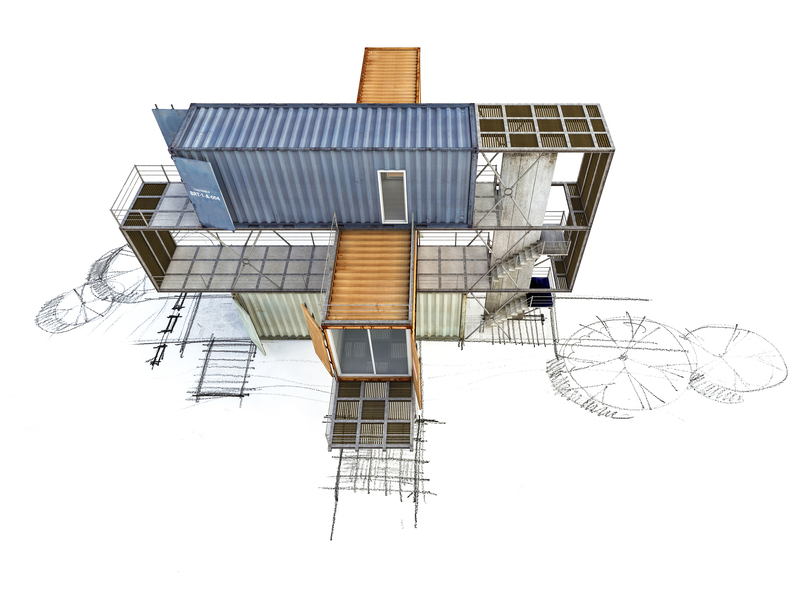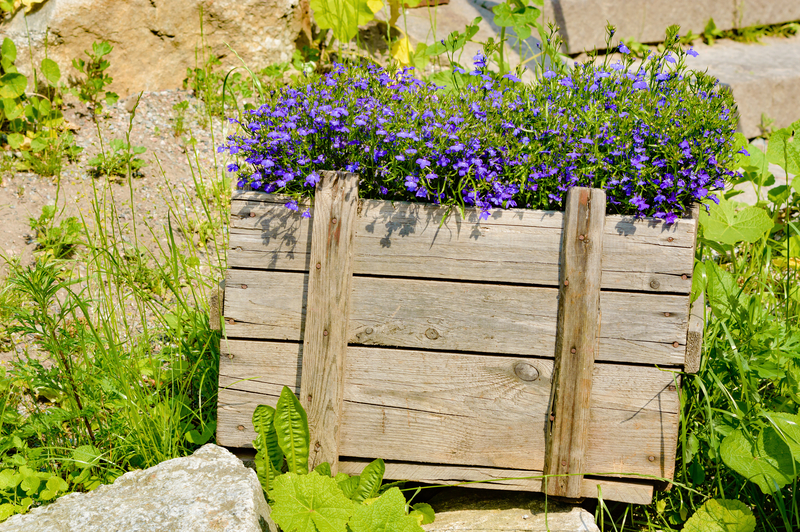Less is More: A Decluttering and Minimalist Living Mindset
In our fast-paced, consumer-driven society, many people are discovering the profound benefits of embracing a decluttering and minimalist lifestyle. The phrase "less is more" has become not just a trendy saying, but a transformative approach to living well with less. This comprehensive guide explores the minimalist mindset, practical decluttering tips, and the holistic advantages of minimal living. Whether you're downsizing your home or simply craving a clutter-free mind, this article will help you understand why minimalist living could be your key to happiness, productivity, and freedom.
What Does "Less is More" Truly Mean?
The concept of less is more epitomizes the philosophy that simplicity and intentionality bring greater satisfaction than abundance and excess. In minimalist living, it isn't about deprivation--it's about living with purpose and mindfulness. By eliminating the unnecessary from our lives, we create space for what matters most: relationships, meaningful work, personal growth, and serenity.

The Core Principles of Minimalism
At its core, minimalism is an intentional promotion of the things we value and the removal of anything that distracts from it. Minimalists seek to:
- Reduce physical and mental clutter
- Emphasize quality over quantity
- Focus on intentional, mindful living
- Appreciate what they have, rather than always longing for more
Adopting a minimalist mindset means embracing the idea that owning less can offer you more opportunities, peace, and fulfillment.
Minimalism vs. Decluttering
While decluttering refers to the physical (and sometimes digital) process of eliminating unnecessary items, minimalist living is a broader lifestyle approach. You can declutter without becoming a minimalist, but minimalism often involves regular decluttering as a core practice. It's a continuous journey that touches every area of your life.
Benefits of a Minimalist and Decluttered Life
Minimalist living and decluttering your space have wide-ranging benefits:
- Reduced Stress: A tidy, organized home naturally promotes calm and lessens anxiety.
- Increased Productivity: With fewer distractions, you can focus better on the tasks and passions that matter.
- Financial Freedom: Buying less means saving more and making room for more meaningful expenditures, such as experiences.
- Environmental Impact: Consuming less and owning fewer disposable items lessens your ecological footprint.
- Time for What Matters: When you're not constantly cleaning or organizing possessions, you free up time for hobbies, relationships, and self-care.
Scientific Backing on Decluttering
Numerous studies show a decluttered environment contributes to reduced cortisol levels (the stress hormone) and improves mental health. A less cluttered living space can thus have a direct, positive effect on your well-being.
Powerful Decluttering Strategies for Everyone
Adopting a decluttering and minimalist mindset is a gradual process. Here are effective, actionable steps to help you start your journey:
1. The Four-Box Method
- Keep - Items you use regularly and truly love.
- Donate/Sell - Items in good condition that no longer serve you.
- Store - For seasonal items or memorabilia to revisit later.
- Throw Away - Broken, obsolete, or unusable items.
Sorting your possessions in this way helps you make mindful decisions about what stays and what goes.
2. The 90/90 Rule
If you haven't used an item in the previous 90 days, and don't anticipate using it in the next 90 days, consider letting it go. This method encourages a thoughtful approach to belongings and challenges you to question the necessity of each item.
3. One-In, One-Out Rule
To maintain a minimized lifestyle, every new item brought into your space should replace an old one. This prevents clutter from building back up and reinforces the mindset that possessions should add real value.
4. Start Small
- Tackle one area at a time - a drawer, a closet, or a shelf.
- Celebrate small victories as you create more organized, peaceful spaces.
How to Foster a Minimalist Mindset
Minimalist living truly takes root when it becomes a guiding philosophy. Here's how to nurture this mindset in everyday life:
Practice Gratitude Regularly
Shift your focus from what you lack to appreciating what you already have. Daily gratitude improves well-being and fosters contentment, aligning perfectly with less is more living.
Be Intentional With Purchases
Before buying anything, ask yourself: Do I really need this? Will it add lasting value to my life? Delaying gratification and questioning the necessity of purchases prevents impulse buying and clutter.
Value Experiences Over Things
Research shows that people derive more satisfaction from experiences--time with loved ones, travel, creative pursuits--than from material possessions. Invest more in memories and growth, spend less on stuff.
Embrace Space and Simplicity
- Enjoy open areas in your home or office; free space brings a sense of calm and clarity.
- Simplify routines and schedules. Minimalist living applies to your time as much as your stuff.
Accept Imperfection
No one achieves minimalism perfectly. It's not about owning a fixed number of things--it's about making conscious choices that align with your values and goals.
Going Beyond Your Home: Minimalism in All Areas
Cultivating a minimalist mindset extends far beyond decluttering physical spaces. Here are other areas where "less is more" can enhance your life:
Minimalism in Your Digital Life
- Unsubscribe from unnecessary email lists and social media accounts
- Delete unused apps and files
- Organize digital documents and photos for easy access
- Limit screen time for greater presence and mental clarity
Minimalism and Your Calendar
Minimalist living also means not overcommitting your time. Say no to activities that drain you, and yes to what aligns with your values. Prioritize rest, self-care, and activities that bring you joy.
Minimalism and Relationships
- Invest in meaningful connections rather than maintaining a large circle of acquaintances.
- Set healthy boundaries to protect your energy.
Common Obstacles to Decluttering and Minimalism (And How to Overcome Them)
Decluttering and pursuing a minimalist lifestyle has its challenges. Below are some common hurdles and practical solutions:
-
Sentimental Items:
It's hard to part with objects that hold memories. Keep only the most meaningful pieces, photograph others, or repurpose them creatively. -
"Just in case" mentality:
We often keep items we might use "someday." Ask: Is this realistic, or are you just postponing a decision? -
Scarcity Mindset:
Worry about not having enough in the future can drive over-accumulation. Building trust in your ability to adapt helps break this cycle. -
Guilt (especially with gifts):
Remember: true gifts are meant to bring joy, not clutter. Letting go doesn't mean you're ungrateful.
Involve Family and Roommates
When living with others, communicate the benefits of decluttering and minimalist living, and set shared goals. Start with your own belongings and lead by example.
Minimalist Living: More Than Just a Trend
The decluttering movement and modern minimalist lifestyle isn't just a passing fad. Across the world, people are choosing to live intentionally for sustainability, mental health, and genuine happiness.
Famous Minimalist Advocates
- Marie Kondo: Her "spark joy" philosophy has inspired millions to rethink their relationship with possessions.
- The Minimalists (Joshua Fields Millburn & Ryan Nicodemus): Their journey from corporate excess to intentional simplicity is chronicled in books, podcasts, and documentaries.
- Leo Babauta (Zen Habits): Advocates for simplicity and mindful living in all things.
Sustainable Minimalism
Choosing less is more also benefits the planet. By consuming less, you reduce waste, conserve resources, and promote ethical production. Sustainable minimalists focus on buying secondhand, prioritizing eco-friendly goods, and minimizing plastic use as part of their minimalist journey.

Getting Started: Your First Steps Toward "Less is More"
Ready to embrace a life of less clutter and more meaning? Here's how to take your first steps:
- Identify your "why." Why do you want to live with less? More time, more freedom, less stress?
- Create a decluttering plan. Start with easy areas and schedule regular sessions to avoid overwhelm.
- Set clear boundaries for new possessions. Make mindful buying decisions based on quality, necessity, and joy.
- Seek support. Read books, watch documentaries, and join communities designed to encourage decluttering and minimal living.
- Celebrate progress. Each drawer you clean or item you release is a step closer to peace and intentionality.
Resources for Continuing Your Minimalist Journey
- Books: The Life-Changing Magic of Tidying Up (Marie Kondo), Essentialism (Greg McKeown), Minimalism: Live a Meaningful Life (The Minimalists)
- Podcasts: The Minimalists Podcast, Slow Your Home Podcast
- Websites: Becoming Minimalist, Zen Habits
Conclusion: Less is More isn't about Sacrifice, it's about Intentional Abundance
Living with less does not mean you have to sacrifice joy or comfort. In fact, when you adopt a decluttering and minimalist living mindset, you make room for what truly enriches your life--peace, purpose, contentment, and real fulfillment. It's a journey toward unburdening yourself, both physically and emotionally, so you can focus on what matters most.
Start small, be gentle with yourself, and trust the process. As you let go of the unnecessary, you'll discover that, indeed, less is more.
```